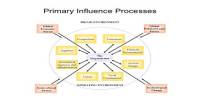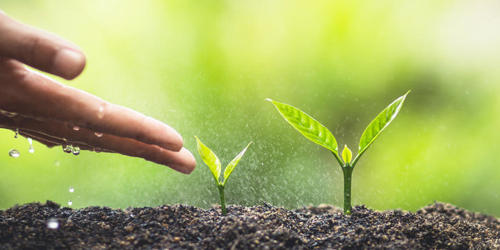According to a recent study, a belief in “oneness” may lead to increased life happiness regardless of faith. Certain faiths may be thought to be more concerned with oneness than others; for example, nonduality, or the interconnection of all things, is a major notion in Buddhism.
According to research published by the American Psychological Association, people who believe in oneness — the belief that everything in the universe is connected and interconnected — appear to have higher life satisfaction than those who do not, regardless of whether they belong to a religion or not.
“The feeling of being at one with a divine principle, life, the world, other people, or even activities has been discussed in various religious traditions, but also in a wide variety of scientific research from various disciplines,” said Laura Marie Edinger-Schons, Ph.D., of the University of Mannheim and study author. “The findings of this study show that oneness views have a considerable positive effect on life satisfaction, even when religious beliefs are controlled for.”
The findings were reported in the journal Psychology of Religion and Spirituality.
Edinger-Schons conducted two polls in Germany, including roughly 75,000 respondents. In the initial poll, over 7,000 participants were recruited as part of a collaborative effort between a university and a firm and asked to reply to a series of statements designed to assess their belief in oneness (e.g., “I believe that everything in the world is based on a common principle” or “Everything in the world is interdependent and influenced by each other”). They were also asked to reply to measures evaluating additional notions related to oneness, such as social connections, connection to nature, empathy, and life happiness.
It was not surprising to me that atheists had the lowest levels of oneness views in the sample. What shocked me was that oneness beliefs were actually highly diverse across various religious affiliations, with Muslims having the greatest levels. In addition, when oneness beliefs were considered, many of the favorable impacts of religious affiliation on life happiness vanished.
Laura Marie Edinger-Schons
Edinger-Schons discovered a substantial association between her oneness scale scores and the notions connected with oneness, indicating that it was a reliable measure of the concept. More importantly, she discovered that persons with higher levels of oneness reported much higher levels of life satisfaction.
Six weeks later, the same survey was presented to the same set of people to evaluate whether oneness scores were changing over time or a more fixed concept. Despite the fact that slightly more than 3,000 of them responded, Edinger-Schons discovered that oneness beliefs had not altered considerably and hence might be stable through time.
“Clearly, oneness ideas are more than a situational feeling or sentiment,” she explained. “They appear to convey a common outlook on life.”
She discovered a significant relationship between oneness beliefs and life pleasure once more. According to Edinger-Schons, while being content with life as a whole should be satisfying in and of itself, studies does reveal that those with higher life satisfaction enjoy certain additional benefits, such as increased scholastic achievement in younger people and better health in old age.

Edinger-Schons investigated if oneness beliefs, in addition to religion, could explain individuals’ life pleasure in a second poll encompassing over 67,000 people. Much research has been done on the relationship between religion and life pleasure, but she wondered whether there could be something more at work. Her specific hypothesis was that oneness beliefs could explain people’s happiness with life even better than religion.
“I discovered that a prominent theme in numerous philosophical and theological texts is the idea of oneness,” Edinger-Schons explained. “In my spare time, I enjoy surfing, Capoeira, meditation, and yoga, all of which have been reported to lead to experiences that can be defined as being at one with life or nature, or just experiencing a state of flow by being involved in the activity. I was curious if the wider belief in oneness is independent of religious views, and how it influences life pleasure.”
Participants came from a variety of religious backgrounds, including Protestant denominations, Catholicism, Judaism, Islam, Hinduism, and Buddhism. More than a quarter of individuals who specified their beliefs claimed they were atheists.
While oneness scores varied by religion (Muslims had the highest median score, while atheists had the lowest), they were a far better predictor of life satisfaction than religious beliefs.
“It was not surprising to me that atheists had the lowest levels of oneness views in the sample,” she said. “What shocked me was that oneness beliefs were actually highly diverse across various religious affiliations, with Muslims having the greatest levels. In addition, when oneness beliefs were considered, many of the favorable impacts of religious affiliation on life happiness vanished.”
Today, many people practice yoga, meditation, action sports, and other activities that try to achieve a condition of oneness or flow. Edinger-Schons believes that strengthening the more broad belief in the oneness of things has the potential to improve people’s lives and may even be more effective than traditional religious beliefs and practices at boosting life satisfaction.
Because all of the participants were from Germany, she highlighted that it is uncertain whether this effect would apply to inhabitants of other countries, and she urged that more research be conducted.
















